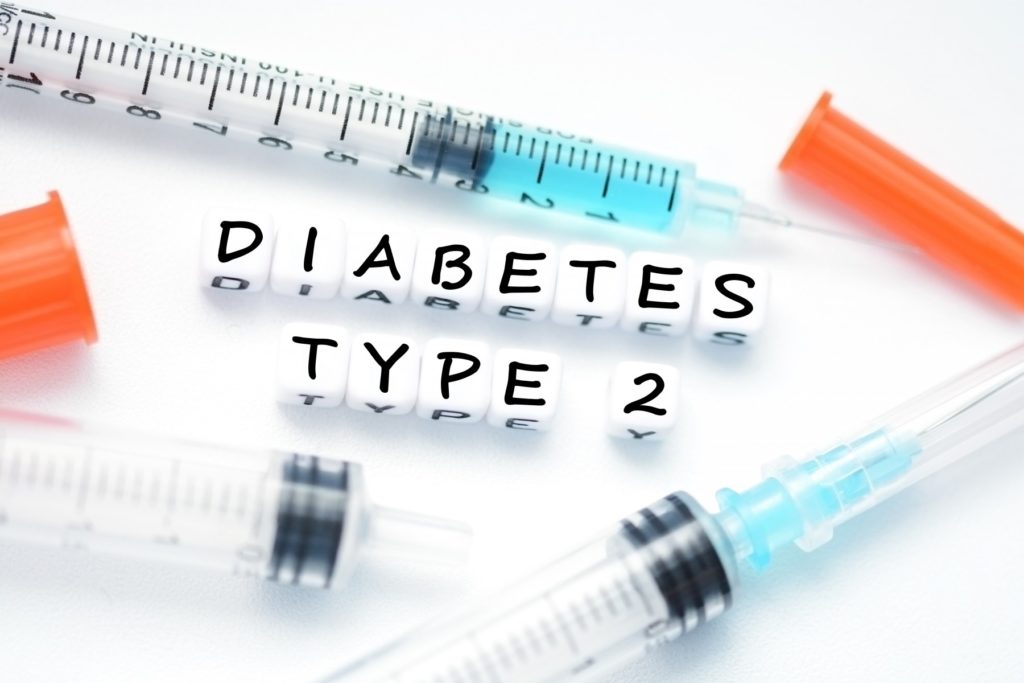If you have type 2 diabetes, you were probably given Metformin and told it was a life sentence. But did you know it is possible to control your glucose levels and even reverse your type 2 diabetes through diet, lifestyle, and supplemental support?
First, a little physiology. Type 2 diabetes is a relatively new disease, first discovered in the 1930s and now rising to epidemic proportions. We are seeing cases of type 2 diabetes in children as young as 7 or 8 (!) years old. Why? The good ole Standard American Diet of excess–the Western refined diet of soda, processed foods, and SUGAR.
When you eat sugar and it is broken down and released to your blood stream, your pancreas releases insulin, a hormone that helps usher the sugar (glucose) from your blood stream and into your cells. When you eat too much sugar, your body must produce more and more insulin to prevent high blood sugar. After you eat too much sugar for a long period of time, your cells decide they have enough glucose and don’t want any more. When glucose is no longer allowed into the cells, insulin levels build up, and the person is called “insulin resistant.” Blood sugar levels continue to rise until the person is called diabetic.
High insulin levels along the way to diabetes are very detrimental: insulin causes obesity because it tells the body to store fat; it contributes to hardening of the arteries and high blood pressure, making the person more susceptible to heart disease. The deadly trio of belly fat, high blood pressure, and high blood sugar is known as “metabolic syndrome,” or syndrome X, and is a warning sign that you are at high risk for diabetes or heart disease.
Thing about diabetes and high insulin is that they are PREVENTABLE. Diabetes is a disease of prolonged mismanaged blood sugar and poor diet. A diet of excess sugar.
How to Avoid Type 2 Diabetes
- diabetics and pre-diabetics respond very well to a low carbohydrate diet with moderate to high levels of good fats and moderate or high protein. (note: you can either eat low carb, high fat, moderate protein or low carb, moderate fat, high protein but NOT high fat, high protein).
- some people with pre-diabetes may do well on a ketogenic diet.
- eliminate refined carbs and processed foods like white flour, white sugar, cereal, baked goods, cookies, candy, fruit juice, sweets, soda. Absolutely no man-made fats such as hydrogenated oils or trans fatty acids.
- increase trace minerals that help regulate blood sugar: chromium, vanadium, magnesium, zinc. Green vegetables such as chard, spinach, kale, and collards are high in minerals. Sea vegetables are excellent sources of trace minerals.
- Try nopales – prickly pear cactus pads- grilled, with olive oil. They contain a substance that is remarkably close to the drug Metformin, and can be very useful for blood sugar regulation. Use Celtic sea salt and sip on mineral broths (for my recipe see http://tinyurl.com/kr9czk)
- eat organic, nutrient-rich meats and fats: grass fed beef, lamb, organic chicken and fatty fish such as wild salmon and cod. Use olive and coconut and flax oils. Take a fish oil supplement.
- remove grains from diet. No gluten, no wheat, no white flour, no white rice, no cereal, no pasta, no bread or buns or rolls. The majority of your diet should consist of meats, leafy green vegetables and other non-starchy vegetables, seeds, nuts, and good fats. Brown rice and quinoa may be introduced once levels begin dropping.
- No fruit and absolutely NO fruit juice. Vegetables provide plenty of nutrients, fiber, and antioxidants. I highly recommend a spirulina and chlorella-based green food powder for additional nutrient support.
- read here how to use berberine to lower blood sugar
There are many blood sugar stabilizing products on the market. Aside from berberine, I use a formula with chromium, gymnema leaf, biotin, trace minerals, and cinnamon bark. Cinnamon is great for blood sugar balance!
Reduce stress levels – high cortisol (the “stress hormone”) levels contribute to high blood sugar levels, so it’s critical that you address your stress level. Consider adrenal hormone testing so you know and correct your stress hormone levels, and begin a gentle exercise program. Try meditation and deep breathing.
Do not reduce any medication without your doctor’s advice. But following a whole foods diet filled with nutrient-dense, unrefined foods, you can regulate your blood sugar levels naturally!

Mary Vance is a Certified Nutrition Consultant and author specializing in digestive health. She combines a science-based approach with natural therapies to rebalance the body. In addition to her 1:1 coaching, she offers courses to help you heal your gut and improve your health. Mary lives in San Francisco and Lake Tahoe in Northern California. Read more about her coaching practice here and her background here.






Hi Mary, I’ve been eating a paleo low carb diet for one month with no sugar of any kind and only one piece of fruit per day.) Before this I also followed a paleo diet for more than one year but ate dark chocolate daily- I’ve now cut this out as well as all caffeine). My carbs are around 50-80gm per day (not subtracting fibre). My blood sugar is not coming down- I have prediabetes. Can having adrenal fatigue and too much cortisol cause diabetes and if so, how do I go about correcting this diet wise? Should I up my carbs to help bring the cortisol down? I meditate 3 times a day for 5 to 10 mins and am taking adrenal supplements. Thanks so much
Hi Jacqui, this is a very old post, and I have a few updated posts with more info:https://maryvancenc.com/how-to-lower-blood-sugar-naturally/
and
https://maryvancenc.com/berberine-effective-drug/
but yes, high cortisol can cause high blood sugar (not nec diabetes independently)